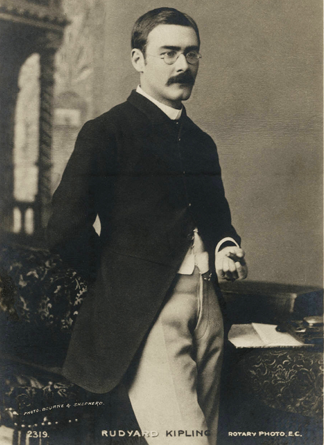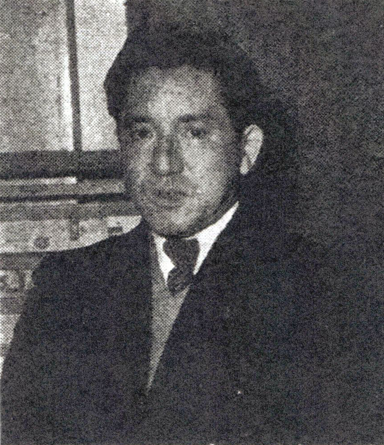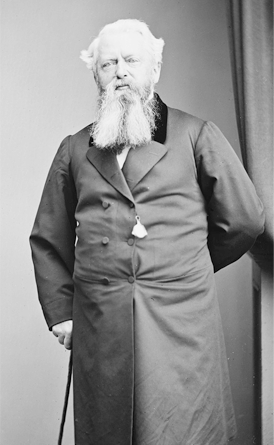There is a famous poem “The Ballad of East and West” written by British poet Rudyard Kipling:
“Oh, East is East, and West is West, and never the twain shall meet.”
Rudyard Kipling “The Ballad of East and West”

The poem is about the Indians (people who belonged to what-was-then India) and the British Colonel's son, but the fact that two parties do not easily understand each other is common everywhere, be it the West or Japan.
Michio Takeyama (1903-1984), who is known for having introduced Albert Schweitzer to Japan, wrote his experience traveling Europe in a book titled “Travels in Europe” (1957). There is a funny episode in the book, in which he describes how the food culture is different in Paris:
…Home cooking is very different from what we see at a French restaurant in Japan. One time they served a whole rooster head. It was like “Kubi Jikken” (“head identification” in the Sengoku era of Japan, where samurai took the heads of foes to show their commanders as the evidence of victory on the battlefield). They say that the crest is nutritious gelatin. Another day I saw a calf face on the table. It had dark-blue skin, with open eyes and a nose. This was gelatin, too. I was often served an entire boiled rabbit, but the head was crumbled and, thin, sharp teeth were sticking out. I enjoyed eating a sheep heart that had many vessels and looked like a satellite. A brain that looks like an atomic cloud was not bad either…
One day at a table with many people, we were served a bloody pig head. This time I was way too reluctant and said:
“Sorry, I just…this is too cruel.”
A young lady responded:
“Oh, but, God created cows and pigs for human consumption.”
A few ladies were enjoying the pig head with their knives and forks. They had no hesitation with regards to these things and chuckled as they watched me falter in front the dish.
“In Japan, since ancient times, we have compassion for living things. If it’s a small bird we may as well bite the head but…”
As soon as I said so, they all started screaming with fear and anger:
“Excuse me, a small bird?! I cannot believe that you eat such a sweet little thing! What a cruel country!”
I did not know how to respond. This may be a good topic for a comparative study of the history of religious thought.
Michio Takeyama “Travels in Europe”

It has been debated that whaling culture in Japan is cruel. I feel that different perspectives deeply rooted in different cultures play a role in these debates. No matter what historical reasons there may be, in the present western culture whales are a favored animal (by the way, it is a misunderstanding that whaling is a traditional industry in Japan. It is a tradition of a specific region, and nowadays the scale of business is negligible).
The story of Michio Takeyama is an example of Japan meeting western culture, but there is an opposite example of a westerner meeting Japanese culture. The following is a story of Townsend Harris who came to Japan to negotiate the Treaty of Amity and Commerce (also called the “Harris Treaty”) and stayed in the country for a while. Harris tells an interpreter that he wants milk, but they are just not on the same page.
Interpreter: Cow’s milk is never for our consumption. The cattle are to help peasants plow fields. Also, because this is a mountainous place, people keep them to transport goods. Therefore, there is no particular need to breed cows. Sometimes we have calves, but cow’s milk is for them to drink. Therefore, we apologize that we do not offer cow’s milk.
Harris: I understand. Then, I would like a cow. I will milk it by myself.
Interpreter: Like I just explained, we are afraid that the cattle are to plow land and assist in transport, so farmers take care of them and do not give it out.
Harris, “The Complete Journal of Townsend Harris”

Harris desperately asked that he would milk a cow by himself, but people did not understand his petition at all. Harris had to endure the different food culture, because Japanese at that time thought of cows just as a means of farming labor.
These funny episodes make me realize how different cultures have different perspectives and way of thinking from the bottom line. We say things like democracy, liberalism, communism, or globalization, but each concept has its origin. Without trying to understand the deep roots of where these concepts are coming from, we would not even reach a general understanding of things.
Masahiro Yasuoka, a leading Japanese scholar in the Showa Era, remarked in his book “Kono Kuni wo Omou (Thinking of my country Japan)” as follows:
As we develop technologically and economically, achieving an improved living standard in this country, we must examine our identity as Japanese; what characterizes us compared to others and what uniqueness we possess. The process of technological and economic globalization should not weaken our identity. Instead, making the best use of our strengths to further international development is what should be valued, because it will benefit not only Japan but everyone regardless of borders.
Masahiro Yasuoka “Kono Kuni wo Omou (Thinking of my country Japan)”
As the world becomes more and more globalized, we will need to recognize different perspectives each other. We need to have a firm understanding of the value we hold, and at the same time, try to appreciate the value that others hold, as well as where they are coming from. Then, the best solution must be explored based on a mutual understanding.
Kipling’s poem quoted above concludes with the following lines:
“But there is neither East nor West, Border, nor Breed, nor Birth, When two strong men stand face to face, tho’ they come from the ends of the earth!”
Rudyard Kipling “The Ballad of East and West”
We must become the “strong men” when faced with cultural differences and appreciate each other with a respectful attitude.